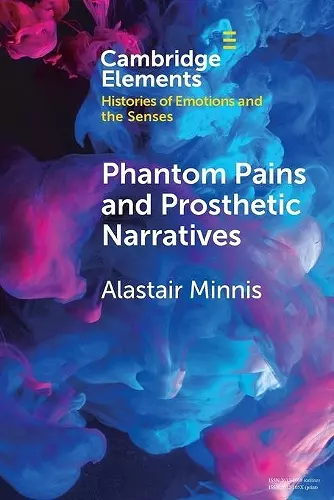Phantom Pains and Prosthetic Narratives
From George Dedlow to Dante
Format:Paperback
Publisher:Cambridge University Press
Published:18th Feb '21
Currently unavailable, and unfortunately no date known when it will be back

Combines medieval studies and contemporary neuroscience to explore the fascinating and surprising concept of 'phantom limb pain'.
'Phantom limb pain' designates the sensations which emanate from limbs that in reality are missing. First coined in the American Civil War, Alastair Minnis traces the medieval parallels for this concept. Is a complete body necessary for personhood? These issues were as absorbing for medieval thinkers as they are for neuroscientists today.'Phantom limb pain' designates the sensations which seem to emanate from limbs that in reality are missing. The phrase was coined by the American Civil War surgeon, Weir Mitchell, in reference to his fictional amputee, George Dedlow. Contemporary neuroscience holds that the brain encloses a schema which covers the whole body, and asserts its unity even if certain parts are missing. Reading backwards from Dedlow's sufferings, Alastair Minnis traces the medieval precedents and parallels, focusing on Augustine and Dante, who subscribed to the notion of a 'body in the soul'. Dante's souls in purgatory self-prosthesize with aerial phantoms as they long for the full embodiment which only the resurrection can bring. Is a complete body necessary for personhood? And how can the gamut of human feelings be run if parts or the entirety of one's body does not exist? Combining medieval studies and contemporary neuroscience, this absorbing study explores the fascinating and surprising history of phantom pain.
ISBN: 9781108970556
Dimensions: 229mm x 151mm x 5mm
Weight: 130g
75 pages